WHY WE EXIST
98% of women and men who are diagnosed late of cancer symptoms do not survive in rural Africa. This is as a result of many factors such as the lack awareness, inadequate funds for early diagnosis and treatment facilities. The high level of ignorance and lack of awareness contributes to the negative stigmatisation, cultural beliefs and religious ideologies challenging cancer in Africa.
OUR PRIMARY OBJECTIVE
- Provide access to definitive cancer diagnosis/testing.
- Develop population-based cancer data to serve as a foundation for both local and national cancer control plans & policies.
- Provide acess to a High-quality cancer information to the local people.
OUR SECONDARY OBJECTIVE
- Provide oncology care and services.
- Provide a platform for training to help develop oncology professionals.
- Strategically collaborate with global cancer organisations.
Our Principles
- Our services must always be of a high standard, integrity and provide a affordable and impartial service to everybody regardless of race, gender, disability, sexual orientation, age or nationality.
- We are committed to effective leadership, managing risk and being transparent and accountable.
Project support:
- Affiliation with cancer institutes to provide advise and support.
- Partner with cancer organisations for advice and voluntary opportunities.
- Partner with funding and grant organisations.
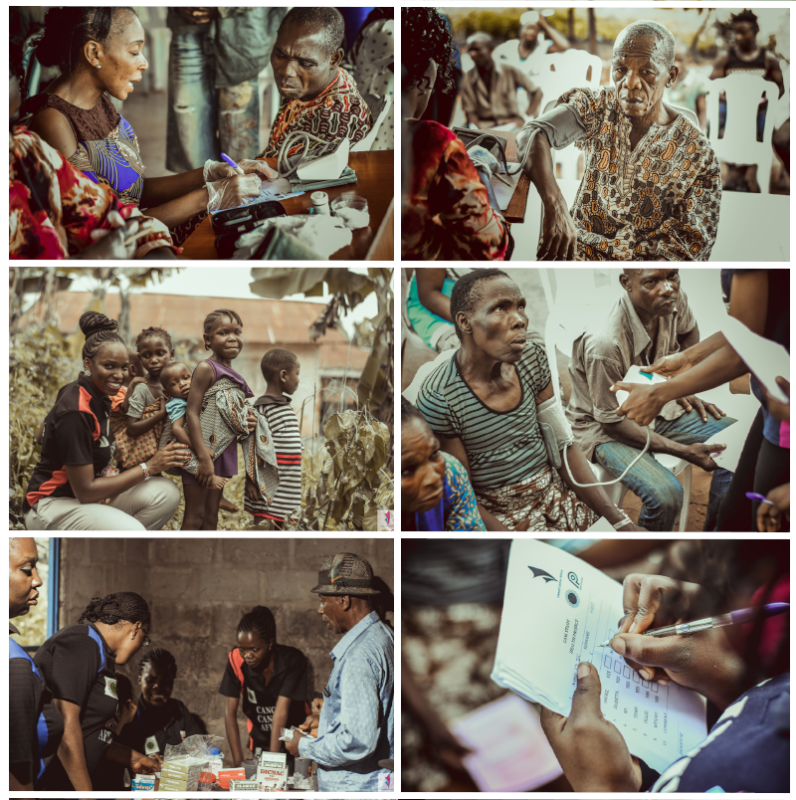
Our Key Result Indicators:
- A reduction in the rate of late cancer diagnosis and mortalities.
- An increase in health literacy regarding cancer risk factors and symptoms.
- An increase in footfalls to our cancer health centre.
What we do now.
- We provide door to door medical checks.
- We fund local medical treatments.
- We keep records regularly to help monitor the community.
How we do it.
- We employ trained medical professionals locally.
- We partner with medical institutions on larger programs.
- We collaborate with organisations and government bodies to execute health programs and allocate grants for treatments.
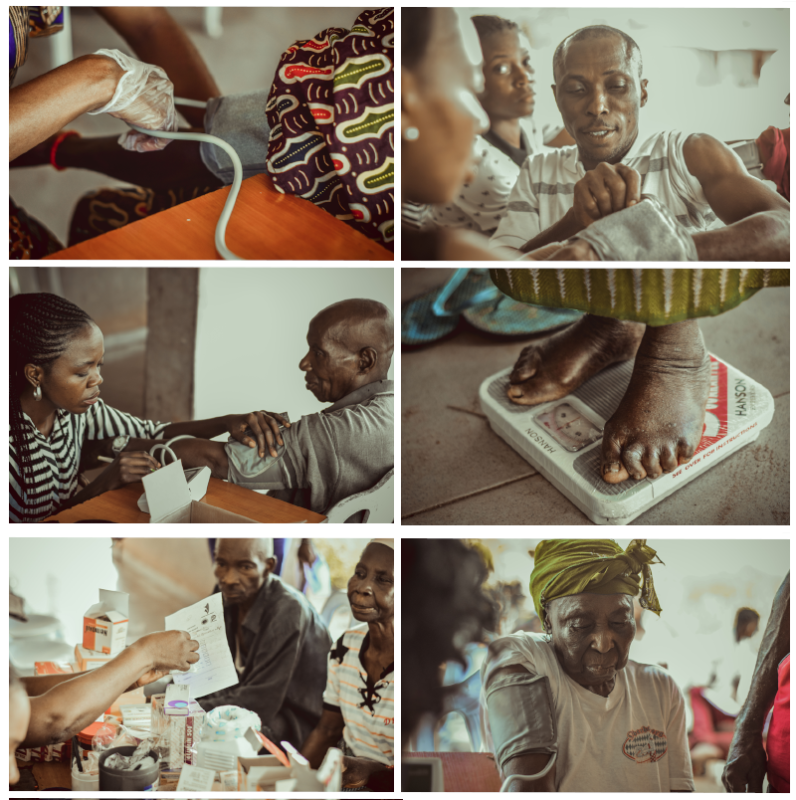
We Welcome Volunteers.
We believe that by engaging volunteers, both medical and non-medical, to work in collaboration with health departments, we can create a sustainable service. Furthermore, reducing cancer in Africa can be more effective through collective collaborations.
we continue to ensure that we:
- Help the local people manage the impact of living with cancer.
- Our nurses visit families six days a week, giving them comfort and reassurances.
- Share information to help reduce anxiety and stigmatization.
- Support families living with cancer
Short-Term Targets – Restructure to Community centre.
By the end of 2017 and early 2018, we had provided our services to over 15,897 people across Nigeria, Kenya and South Africa. Although our services were well received and effective for the short term, we realised that in order to make a significant impact and sustainable support, we needed to build a cancer centre of excellence where we could control the quality of services provided, effectively manage the funds allocated and the medications issued.
Therefore, we decided to streamline our services to a local community until the centre is completed and then model it across other African countries.
Long Term Targets – Cancer Centre Of Exellence.
We laid out our long-term vision, to set up a Cancer Centre of excellence in rural Nigeria and Kenya, which will set as a model for future centres across rural Africa. We laid the first brick towards this centre in Nigeria in March 2017 and propose to finish the structure before 2024.
The Cancer centre of excellence will comprise of three core sections: Medical (diagnosis/testing), Education (foundation training) and Communication (community radio).
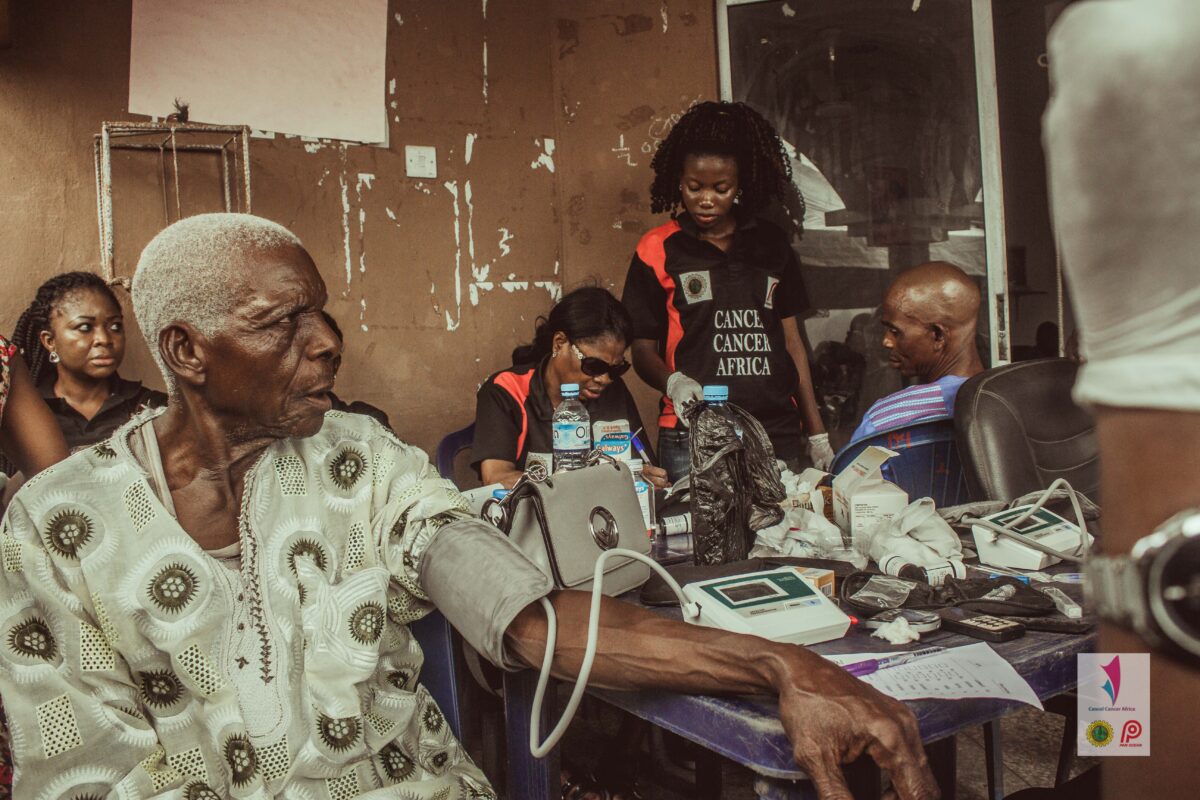
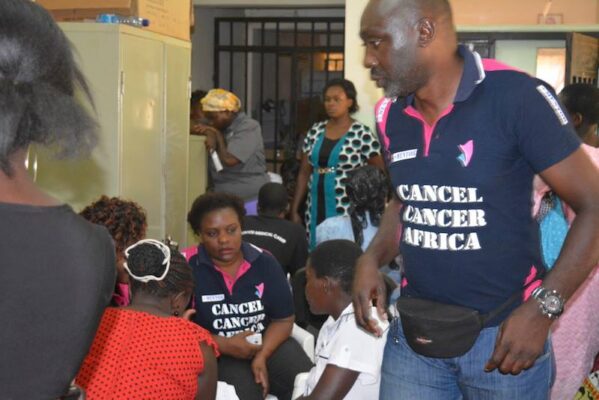
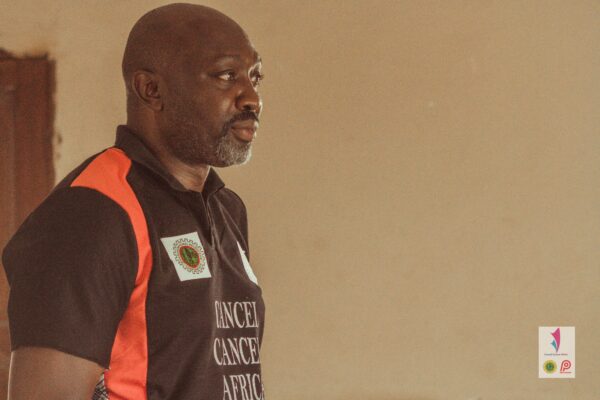
Ronnie Jacobs was born in Birmingham, England and his parents are from a rural village in Edo State, Nigeria. His father died of prostate cancer in 2010. Making his mother a widow, depriving her of a loving husband of over 40 years of marriage and the chance of his father playing with all his lovely grandchildren.
His father never told anyone about his early symptoms and kept his illness until he died a secret. It was a sad loss, but it was made worse when the children eventually found out why he died, which could have been easily prevented. This pain led Ronnie to set up a local charity in Nigeria (Lift Above Cancer) and Cancel Cancer Africa in the UK to help raise cancer awareness in rural communities in Africa.
“My passion is to build a free community health centre that will contribute to improving early detection of cancer symptoms to help the local people”
One in eight men will be diagnosed with prostate cancer during their lifetime and it is the second leading cause of cancer death in men in Africa. The rate of late presentations of Cancer symptoms in rural Africa is the number one reason why the number of people dying from cancer is very high in rural Africa. Most countries in Africa do not have the facilities to care for Cancer patients. Imagine a country of over 60 million people with just one government MRI. Many poor women live in rural villages need to travel hundreds of kilometres to the city capital hospital with the hope that they will be attended to.

